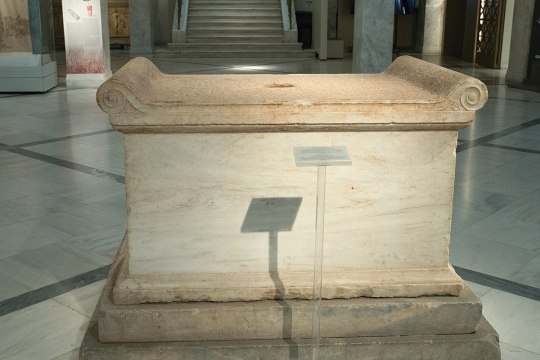#and khari in physicality
Explore tagged Tumblr posts
Text

loose concept character design sketches are like cocaine to me. I can’t stop making them
#goodwillfidgetspinneroc#Khari mortem#and#Orion Mortem#finally settling on designs for these two#i like the idea of khari lounging and fighting in clothing with little armor#she doesn’t value her own life; shes got a flair for the dramatic#where as Orion is only ever fully covered in fights#because he has both undisclosed healing items#and undisclosed weapons#he plays the wild card in team ups and it’s valuable no one can read him#both have scarified themselves for the cause in different ways#orion in personality#he isn’t a person; he is the helper. he is the healer#he can’t be orion- he is just a healer#and khari in physicality#she is fully willing to die in blaze of glory if it means ending suffering#she is a martyr he is a healer#and together they form the ultimate combo: catholic school level guilt over enjoying life#art#character design#original character
4 notes
·
View notes
Text
The 7 Virtues of Hellenism & Aphrodite Worship
Xenia - hospitality, generosity
being warm and welcoming to others in Her name, just as She has done for us
Kharis - appreciation, gratitude
being grateful for all the gifts She has given us and showing it through ritual, offerings and prayer
Eusebia - reverence, veneration, piety
recognising that they are deities and showing them our respect. even us godspoused people must show respext to the ancient beings we love
Hagneia - moral, spiritual and physical purity
veiling is a great way to maintain purity, though some other ways include ritual bathing and spiritual cleansing
Arete - excellence, brilliance
follow the path of the gods, whoever's path you choose and follow it to glory
Sophia - knowledge, wisdom
learn, as much as you possibly can. learn about Her, the old ways in which She was honored
Sophrosyne - self-control, sound mind, balance
keeping a spiritual balance during rituals and prayer. try not to ask Her to do your hexes/jinxes/curses, do your own dirty work
#hellenic deities#hellenic pagan#hellenic polytheism#hellenic worship#aphrodite#lady aphrodite#aphrodite worship#aphrodite devotion#maggie preaches
607 notes
·
View notes
Text
Altars in Ancient Greece
A disclaimer before we get into it: this is a brief explanation of how altars functioned in ancient Greece. I am not telling you how you should set up your own personal altar(s). Rather, I hope this can serve as foundational knowledge for you to consider while figuring out what works best for you and your practice.

Pentelic marble altar from the ancient agora of Athens. Dedicated by the Athenian Boule to Aphrodite and the Graces. c. 194-193 BCE.
The purpose of the altar is to receive offerings for the deity. It is the sacred place where worshipers pour their libations of wine, deposit their gifts of fruit, honey, or cakes, and burn a portion of the sacrificial animal. Offerings in ancient Greece were a key component of religious life; it is how mortals express their honor and build χάρις (kharis, favor). The altar is a highly important point of contact with the divine, and is an essential physical element for any cult to be established.
In fact, we can determine whether or not a deity was worshiped in ancient Greece based on if there were any altars dedicated to them. A god or daimon with no altars was very likely only part of the mythological or literary tradition and did not receive any sacrifices or worship. Altars were generally dedicated to one god or a group of related deities. In rarer cases, they may be dedicated to the whole pantheon (example: the Altar of the Twelve Gods in the Athenian Agora).
An altar for a heavenly (ouranic) god would be a raised surface or pedestal, and it would be oriented towards the East. The typical Greek altar consisted of bricks which were white-washed with lime, or it was carved from stone such as marble or limestone. They could be plain, or they could be decorated with volutes and narrative scenes. They often had the name of the deity inscribed into them. Altars could also come in a variety of shapes, the only real requirement being that the surface on top was flat so it could hold the offerings.
More prominent cult sanctuaries may feature a large, elevated altar with steps leading up to it. There were also natural rock altars, or in very rustic sanctuaries, a collection of stones was grouped to form an altar. If one was worshiping a khthonic god who dwells on or within the earth, they would provide sacrifices at a low-lying altar such as an eschara, or a simple open pit called a bothros.
Indoor altars were very uncommon. At sanctuaries, the altar would be outside of the gods temple, often in front of the entrance. Though a sanctuary could contain several altars and sacrificial sites. Households would have had one in their courtyard for private worship. Other altars were located outside of public buildings or in community gathering places like an agora.
The reason for being outdoors was so that the gods who reside in the sky could observe the sacrifices being made and enjoy the rising smoke of the incense. Meanwhile, a libation poured directly onto the bare earth would seep down below to the khthonic gods. Every altar was ceremonially sanctified when its first sacrifice was performed; from then on, it was considered part of the property of the deity.
Below are my sources. I'll likely make a part two of this post where I go over some ideas for how we can construct our modern altars. Thank you for reading!
Ancient Greek Religion, Jon D. Mikalson
Greek Religion, Walter Burkert
Ancient Greek Cults, Jennifer Larson
#if you find any mistakes pleeeease let me know so i can correct it#hellenic polytheism#hellenic reconstructionism#helpol#ancient greek religion#greek gods
292 notes
·
View notes
Text
A Collection of Greek Keywords for Hellenic Pagans (kharis, miasma, etc.)
Kharis:
Kharis means 'grace' or 'favour' and it is in reference to the reciprocal nature of our relationships with the gods.
Liddell and Scott describe it as, "A grace or favour felt on the part of the doer but more frequently on the part of the receiver in the form or thankfulness and gratitude."
It essentially means a favour done in delight. This can be both the offering we give to the gods, and the favours and blessings the gods bestow upon us.
Kharis is both the action of offering and worshipping and also what is built between a worshipper and a god through the actions of offering and reverence. It can be used like this:
'Giving an offering to the gods is an example of kharis.'
Or:
'I have built up kharis with Apollo over the years.'
Khaire/khairete:
Khaire or khairete are words that mean 'hail', 'farewell', or 'blessings'.
It can be used to greet someone, either as hello or farewell (I use it at the end of some of my posts). It can also be used at the end of a prayer.
Khaire is used to address one person or god, and khairete is used to address a group.
Miasma:
Miasma means 'stain', 'pollution', 'defilement', or 'stain of guilt'.
It is a type of spiritual pollution that a person or a place can collect through either happenstance or deliberate action. It makes us spiritually unclean but there is no damnation involved in miasma and thus is not similar to sin. Sin is more comparable to agos, which is mentioned later.
We tend to collect miasma while going about day-to-day life, almost like getting our hands dirty while working. The stain it refers to is always one of a spiritual nature; miasma is a strictly spiritual concept.
It makes a person or place ritually impure, hence it is inappropriate to interact with the divine while in a miasmic state. The gods are said to reject the offerings of a miasmic person or to vacate a miasmic place until it is cleansed.
Human blood is also considered to be miasmic when spilled outside of battle, though this is not the case for menstrual blood (although I tend to avoid praying and doing rituals during that week anyway as I consider it to not be my cleanest state possible. I use this time to tend to my altar physically instead, cleaning it and reorganizing it).
Miasma is very common, everyone gets it, mostly due to plain daily life, though sometimes due to deliberate actions. Miasma can always be cleansed.
Sources of miasma include:
Death in the home - Pollutes the grieving and the home. People and home need to be cleansed before interacting with the gods or going to temple.
Birth - Because of the blood involved. Mother and baby are considered by traditional standards to be miasmic for three days postpartum and both are generally cleansed at five days postpartum.
Intercourse - Both parties are polluted by the act and must be cleansed before interacting with the gods or going to temple.
M*rder/m*nsl*ughter - This collects both miasma and agos. The m*rderer becomes miasmic, and a place can become miasmic if a m*rderer is free and unpunished there. This does not apply to blood spilled in battle.
There is a line in Hesiod's Works and Days that refers to the action of cleansing oneself of miasma before interacting with the gods. It reads, "Never pour a libation of sparkling wine to Zeus after dawn with unwashen hands, nor to others of the deathless gods."
Khernips:
Khernips means 'handwash', or 'lustral water'.
It is basically Hellenic holy water. It is used to purify ourselves of miasma before interacting with the gods.
It can be made by dropping burnt herbs or laurel leaves (bay leaves) in clean water, or by dropping a lit match in clean water. Simply washing our hands in plain water can work symbolically as well if done with the specific intention of purifying oneself.
Agos:
Agos means 'curse', 'pollution', or 'abomination'.
It can be considered as a step up to miasma and, while not quite the same, it could also be considered comparable to sin. It is brought about through deliberate actions and it is very difficult, if not impossible, to cleanse. Agos can also invoke the divine wrath of the gods, so it does involve a form of damnation
Some things that cause/invoke agos include:
Having intercourse inside a temple
Temple robbing
M*rder
Bloodshed inside a temple or on sacred grounds
Broken xenia
The refusal to properly bury a family member or a soldier (even an enemy soldier)
K*lling someone who is under the gods' protection
Offering human blood to the gods (due to its miasmic nature)
Agos is hardly as common as miasma, so it is not something the general practitioner should worry about.

#🏛🕯#hellenic pagan#hellenic paganism#pagan#paganism#helpol#hellenic polytheism#hellenic polythiest#polytheism#polytheist
688 notes
·
View notes
Text
A Begginer’s Guide to Hero Worship
There are a lot of terms I use throughout this post that are explained in my beginner’s guide to helpol — start there if you’re completely knew to Hellenic Polytheism! I won’t define many of my terms here as they’re mainly explained in that post, Hero Worship itself is the only thing I’m defining here.
The heroes I worship Helen, Odysseus, Penelope and Tiresias, so I do have a bit of experience, but I may get things wrong! Feel free to correct me if that is the case. I just want to help, as I’m asked about this topic often.
That said, feel free to ask me anything if this post doesn’t help to answer a specific question you have!
What is Hero Worship?
Hero worship is a term in Hellenic Polytheism that describes the worship of a hero from Greek Mythology. In hero worship, the word ‘hero’ doesn’t mean what it means nowadays in the context of superheroes and whatnot, but a hero is just any mortal that appears in Greek Mythology. It was practiced in antiquity with heroes such as Achilles, Herakles, Perseus and Odysseus, among others. Female figures in Greek myth can also be worshipped.
How to Worship Heroes (and how it’s different to deity worship)
As always, start with research.
The most important and best piece of advice I can offer is to treat them like humans. Don’t put them on too high a pedestal, and you can be more casual than with deities.
In many ways, worshipping heroes is quite similar to worshipping a chthonic deity, since heroes are humans who have died. That is to say, when it comes to prayer position and food offerings, do as you would with a chthonic deity. (I cover ouranic and chthonic in my beginner’s guide to Helpol, linked above!)
And on that note, yes, building kharis with a hero still involves prayer and offerings as well as devotional acts and communication via divination methods, and all those other things that are central practices for this religion.
Now, when it comes to prayer, with heroes I don’t see it in quite the same way. This is purely UPG, but it still might be useful and I know some other people agree: my prayers to heroes tend to be more inspiration-based than asking for a physical thing. Heroes are not deities, and I personally find that distinction important, and I don’t feel that the heroes I worship have the divine power to grant me things. I’ve used this example before, but I have a long-distance best friend. If I was praying to Aphrodite, I would ask for an opportunity to see her soon. If I was praying to Odysseus, I’d ask him to help me remember that she loves me and that she’ll be there for me regardless of distance.
The Point of Hero Worship
As heroes are human, I find them to be much closer to role modes than the gods are. It is not attainable to be like a deity and suggesting so feels hubristic. Wanting to be like one of the heroes (or at least certain aspects of them) is more possible.
They also often feel more approachable and like the relationships are more casual than with deities. They were human, and therefore understand human struggles. They’re not gods, so you don’t have to fear them. I’d argue it’s important to not be afraid of the gods either, but it’s easier with heroes, and they generally aren’t as intimidating.
A Bit of UPG
Something I find really helpful for hero worship is having a Chthonic deity who I use to aid in contacting the heroes. For me, this is Melinoë — Goddess of Ghosts. Hermes would also work for this because of He psychopomp-ness and being a messenger, or Hades since He rules the dead, but really I’m sure any chthonic deity could be made to fit this. I name the deity (plus an epithet relating to the dead) at the beginning of all my prayers to heroes. With Melinoë, it’s usually “Melinoë Enodia, (Melinoë of the Crossroads), let <hero’s name> hear me” and then I continue my prayer as if it were just to the hero.
FAQs
How do I reach the heroes?
The same way you reach deities, however that looks for you! If you’re not amazing at recognising signs, divination methods like tarot or dice can be helpful (I also use runes), you can write letters, and even ask for specific signs in your prayers, things that you will be able to recognise.
How do I address the heroes? (ie: By nobility title or name? Are nicknames okay?)
This depends entirely on your relationship with the deity, so I’d say don’t use nicknames at first but as you build kharis, you may be able to. Nobility titles (like ‘Queen Helen’) are unnecessary in my opinion unless you’re using them in prayer since my prayers tend to be quite formal. I also use them when talking about the heroes to some of my friends to differentiate between, say Odysseus (from EPIC the musical) and King Odysseus (the hero I worship)
Is worshipping rival heroes okay?
Yes, as this religion is polytheistic the deities and heroes know, expect, and accept that we will worship a variety of them. It’s fine to worship heroes from opposing sides of the Trojan war (like, say, Achilles and Hector) just as it’s fine to worship deities and heroes who don’t get along (like Aphrodite and Helen, for example) often people will separate altars if they have separate ones for each figure they worship
Is it okay to consume retellings and other media about them?
Yes! As the ancients would have had their own media about them (like the plays, especially the comedies) we also have our own that can be consumed.
Taglist:
@gay-gremlin-is-gay @my-name-is-outis @honeybumblebuzz @volestia @thechildofhypnos @shootand-styx
56 notes
·
View notes
Text
Devotional Jewelry
I wear a lot of devotional jewelry and I feel that people don't talk about it enough. I devote myself to Zeus through his devotional bracelet, necklace, and earrings. Though wearing earrings and necklaces used to give me a great amount of dysphoria, it feels so different as a devotional act. It's as if I can physically feel the kharis envigorating my spirit and it feels absolutely amazing. I feel so connected and so close to him.
Having a physical reminder of your patron deity should be more normalized in the hellenic space as it is in larger spaces like Christianity. You see people a large amount of Christiants wearing crosses for Jesus Christ, but not so many hellenic pagans wearing jewelry for their deities. It just feels so different to have an almost physical connection to a deity through what you wear. I've never veiled, but I imagine it's a similar feeling--that feeling of almost having a deity's protection or connection through something so physical.
I personally have devotional bracelets that are marketed as such from Etsy and then a labradorite pointed pendant and a matching pair of labradorite earrings for Zeus, as their gray swirls and shines remind me of the overcast sky and his domain, but if you're looking for devotional jewelry and don't know where to start, you can find dedicated devotional jewelry on places like Etsy, or even search for specific crystals or gems that others associate with a deity you worship or are devoted to, or do what I did and choose what you feel drawn to or something that reminds you of them.
If you cannot buy dedicated jewelry then you can always try to make a bracelet or necklace or something else by purchasing materials from some kind of crafts store--hell you could even dedicate the act of making it to your chosen deity/deities.
I simply find that devotional jewelry should be more appreciated as a form of an almost votive offering to your deity, as I personally find it to especially strengthen my relationship with my deities. Though I may be rather biased.
#hellenic deities#hellenic pagan#hellenic community#hellenism#hellenic polytheism#zeus devotion#zeus deity#zeus worship#zeus devotee#zeus#devotion#devotional jewelry#jewelry#religious jewelry
50 notes
·
View notes
Text
HelPol 141 Headcanons
hello, hellenic polytheist here, projecting onto characters i like because i can. rbs are appreciated!!! im open to suggestions for other characters (no promises i will 100% do them, it depends on my motivation), and if you're going to be an anti-paganism asshole just fuck right off.
-----------------------------------------------------------
notes:
realistically there's little difference, but for this; deities under DEVOTED TO are deities they consistently worship and actively consider themselves devotees of, and deities under ALSO HONORS are ones they offer and pray to but not as frequently.
the boldened text in every list of domains is what each character focuses on in their worship.
FEELINGS ABOUT RELIGION and RELIGIOUS JOURNEY are lumped together because for most of them they're heavily intertwined, and also the sections would be too small if i were to separate them
-----------------------------------------------------------
JOHN 'SOAP' MACTAVISH
DEVOTED TO:
Hephaistos / Hephaestus : forges, fire, metalworking, technology, sculpture, craftsmanship, physical creation, art
Ares : war/battle, dance, violence, fear, rebellion bloodlust, courage, civil order, masculinity
ALSO HONORS:
Dionysos / Dionysus : alcohol, madness, cycles, rebirth, parties, agriculture, feasts, theater, fertility, release, inspiration
Hermes : trade, wealth, luck, fertility, animal husbandry, sleep, language, thieves, and travel
PRACTICE STYLE:
probably on the modern end. rushed, simply due to his work. i'd imagine he left Catholicism in this AU due to the strict structures it had (+ probably some trauma, lets be honest), and therefore he would prefer the leniency of a more new-age practice. i also think Soap would like how much of a puzzle it can be. he'd like figuring out every what works for him, doing the math and finding out the best ways he can go about each thing. he'd be knowledgeable of historical practices, but in an "know the rules so you can break them properly" sort of way.
FEELINGS ABOUT RELIGION/RELIGIOUS JOURNEY:
in the beginning, he probably felt hesitant. a little overwhelmed , too. growing up in a majorly monotheistic religion, it took him a while to get comfortable with branching out in his worship. once he did, though, he was much more open and himself in his practice. he loves it. he loves finally praying and actually getting answers. he loves offering, loves divination, loves building kharis. he especially loves learning the other ways people practice; he finds it all fascinating (major projection lol).
KYLE 'GAZ' GARRICK
DEVOTED TO:
Aphrodite : love, sexuality, the people, war, self-confidence, relationships, beauty, passion
Ares : war/battle, dance, violence, fear, rebellion bloodlust, courage, civil order, masculinity
Hephaistos / Hephaestus : forges, fire, metalworking, technology, sculpture, craftsmanship, physical creation, art
ALSO HONORS:
Athene / Athena : wisdom, battle strategy, weaving, crafts
PRACTICE STYLE:
also modern, but probably more in the sense where he's adapting historical practices to fit a modern lifestyle. i think that he, while he still gives physical offerings, prefers and enjoys doing devotional acts that are connected to the gods in some way (i.e; physical training for Ares).
FEELINGS ABOUT RELIGION/RELIGIOUS JOURNEY:
i dont think he really felt guilty or hesitant about it; even though his parents were firmly Christian, i like to think that they were very accepting and allowed their kids to learn and explore different things. while they brought them to church and raised them with exposure to their faith, they didnt force him or his sister to follow their beliefs. i imagine that Gaz did follow those beliefs for a while, and that his switch would've been him just.. growing out of it, and feeling a stronger pull to polytheism overall.
maybe he felt that monotheism was limiting, maybe he desired fewer expectations about 'how he should be acting' than being a Good Christian Boy gave him. regardless, i think he's glad he made his decision. i also think he's a total lover the religion's mythology; when he isn't using his free time training and spending time with the team, he's spending hours researching and reading.
JOHN PRICE
DEVOTED TO:
Zeus : storms, the sky, fatherhood, law, justice, oaths, kingship, hospitality, prophecy, order
ALSO HONORS:
Any Diety : Price seems like he would offer and pray to whomever he wants/needs to in the moment
PRACTICE STYLE:
i unfortunately don't have much to say for Price. admittedly, characterizing him is difficult for me. i think he gives mostly fuck all about going about proper reconstructionism, though, and has his own much more casual way of doing things. does he respect the historical stuff? yeah. doesnt necessarily mean he wants to engage in those ways, though.
FEELINGS ABOUT RELIGION/RELIGIOUS JOURNEY:
converting was like reuniting with an old friend, for John. as a lad he'd heard of the myths, listened to the tales. he was always intrigued by it, but nothing more. he didn't have a religion for the longest time—didnt think he wanted one. he started simply because he was curious, and liked what he found. i like to think he leaves the rest of his cigars burning when he's done smoking as little offerings for Zeus.
SIMON 'GHOST' RILEY
DEVOTED TO:
Nemesis : divine retribution, revenge, justice, balance, indignation
ALSO HONORS:
Artemis : wilderness, the hunt, instinct, plague, healing/purity, archery, dance, music, chastity, transitions, care of children
Dionysos / Dionysus : alcohol, madness, cycles, rebirth, parties, agriculture, feasts, theater, fertility, release, inspiration
PRACTICE STYLE:
he respects historical tradition, and probably has a secret desire to be able to participate in those ways. though outside of that he definitely isnt picky in how he chooses to do things. he does what he's capable of in the moment, nothing more. huge believer of the phrase 'if it works, it works'.
FEELINGS ABOUT RELIGION/RELIGIOUS JOURNEY:
Ghost is probably hesitant with worship—faith is something that evaded him after the horrors he went through. he found Nemesis after escaping Roba, and holds a lot of affection for Her especially (i dont think his desire for revenge on Roba was specifically influenced by Her, i definitely think that was of his own volition. though it did get Her attention, and he definitely had Her support). he does appreciate the gods, even if it's hard some days because of all he's been through and who he is.
-----------------------------------------------------------
TAG LIST:
@idiotrxccoon
@spaceperson64
@the-angst-zone
@parvulous-writings
@same-marie-same
@material-ghoul86
@sciencehadbabies
@sharkiiv
@pyxrin
@chaosundcoffee
(if you liked my post offering to tag people in this, i assumed that meant you wanted to be tagged and added you to this list. apologies if there was any misunderstanding there and you didnt want to be)
#atlas' headcanons#cod#call of duty#simon ghost riley#john soap mactavish#john price#kyle gaz garrick#cod modern warfare#hellenic worship#hellenic devotion#hellenic polytheism#atlas' cod posting
51 notes
·
View notes
Note
Hi, I wanted to ask If you had some tips for newer devotees? I'm not even a full week in and very commited to My Lady Aphrodite.>~< Idk why but I just feel very drawn to her like the earth of the sun.
hi darling welcome! ♡
my first and foremost tip is to make sure you’re keeping up with some basic research. learn the myths, the bases of this religion, learn about the deities—especially the ones you’ll be worshipping.
it’s always good to start off with that. i know research can be daunting, but you can really take it as a story you’re reading to yourself every chance you get. you can even use other resources for some aspects like youtube videos or documentary-type videos, etc etc.
i know that there are many worshippers and devotees of Lady Aphrodite here, one of whom i follow is @wingsofaphrodite, a lovely individual you can learn a lot from ♡
there’s also many blogs here devoted to sharing many resources related to hellenic polytheism, as well as different ways to worship your deities and the things you can devote to them (both in terms of physical offerings or devotional acts). i definitely recommend you check them out! it’s always good to do your own research instead of fully depending on what others say though ^^
my personal insight on this is that you should take your time with worship. don’t rush into anything and don’t rush yourself. it’s not a race, as i always say. remind yourself that you’re doing your best—this is especially important when you’re first starting out, i remember how overly critical i was of myself in the beginning and still am to this day.
if you ever feel drawn to a particular deity, i definitely encourage you to work on worshipping them and building some Kharis with Them. Kharis is especially important as it signifies a bond between you and your deity. the simplest way is to relate it to how you try to get to know a person and even share things with them in an attempt to foster a deeper relationship. as the gods aren’t always aware of us and every thing we do (common misconception!), this draws Their attention towards us and provides us an opportunity to introduce ourselves and share our goodwill and intentions. so definitely take the time to understand Lady Aphrodite; Her myths, what devotional acts you can perform, what offerings you can provide (if you are able to), maybe even set up an altar (again, if you’re able to. even a small altar made in a shoebox works, as i’ve heard).
i know this has been long and might not have been the most informative, but it really is a journey you must venture on yourself to really discover what it’s like to worship and devote yourself. these blogs and resources will be by your side and will travel along with you on this discovery. don’t ever hesitate to reach out with more questions, and welcome in ♡
#sun answers#hellenic polytheism#hellenic polytheist#hellenic polytheistic#hellenic worship#hellenic devotion#hellenic deities#hellenic community#helpol#christopagan#christopaganism#aphrodite deity#aphrodite devotee#aphrodite worship#apollo deity#apollo devotee#apollo worship#hermes deity#hermes devotee#hermes worship#hypnos deity#hypnos devotee#hypnos worship#thanatos deity#thanatos devotee#thanatos worship
42 notes
·
View notes
Text

TMNT: 40TH ANNIVERSARY COMICS CELEBRATION
July 2024
By Kevin Eastman, Edgar Alan Poe, Jim Lawson, Tristan Jones, Gary Carlson, Chris Allan, Erik Burnham, Lloyd Goldfine, Ciro Nieli, Andy Suriano, Tom Waltz, Ronda Pattison , Tom Napolitano, Steve Lavigne, Paul Harmon, Frank Fosco, Adam Guzowski, Sarah Myer, Luis Antonio Delgado, Shawn Lee, Khary Randolph, Emilio Lopez, Michael Dialynas, Pablo Tunica, Freddie E. Williams II, David Petersen, Ken Mitchroney, Aaron Hazouri, Dan Duncan, Sophie Campbell, Jodi Nishijima, Stan Sakai, and Emi Fujii.

Come and enjoy stories that will remind you of the 40 years of turtle history.

SCORE: 10 *
* Assuming you are familiar with these iterations.
This is a strange read, and curiously, there are three or four highlights for me, and they are not exactly the ones you would imagine.
Spoilers after the break...
The first story by Kevin Eastman is in the Mirage section of the book but... well... I'll leave at that... I wouldn't call it the Mirage we knew.

There is a story by Lawson and Lavigne with the Rat King that... it's fun. But, you know... I wouldn't even try to fit it in canon... the amount of continuity physics you need to bend to place this story is not worth the time. Just enjoy as a new story by these two iconic Mirage artists.

This other story by Tristan H. Jones and Paul Harmon requires more analysis. I'll revisit it on my gang wars video and try to give it more context... but unfortunately... it's just too vague. All I can say for sure is that it happens in the future of that incomplete saga, but the narrator just takes too many artistic choices to be taken at face value.
Also... I believe this is the first official (frontal) appearance of Agent Bishop (unless I got the character wrong, but Jones already tried to introduce him in this saga). I think he is still holding on to it, and I really hope he gets to tell his story. I wouldn't mind a mini-series... just saying!

The Volume 3 story was... not for me. The dialogue alone felt tired.

The Archie adventure was short, eventful, and funny... and it looks amazing too!
In just four pages a new character was introduced and... a new love story was implied! And it's not just a gratuitous cameo... this is a funny sequence.

The Saturday Morning Adventures (the de facto 87 story) looks amazing as usual, but I didn't find the story that interesting. However, it started a theme that would run across most of the stories in this special after this one: Master Splinter.


The 2003 story is a... loose canon?
Hun is Slash, and Shredder is back... so make of that what you want. All I'm going to say is that this felt a lot like watching the beginning of a 2003 episode, with the narration setting the tone.


The 2012 story was one of the least interesting in the previews, but I have to say... it was probably one of the best. It brought back a villain and it technically serves as an excuse to continue the series?
But to me the best thing about the story is the art. I am surprised Ciro Nieli didn't do more comic book work for the Turtles all these years. In fact, if they somehow decided to continue the 2012 universe in 2D in this style... I'm all in. Well, who am I kidding... I would be in anyway... but this looks amazing.



Andy Suriano did probably the most interesting story in the book. Now, I am not sure if his style doesn't translate well to static panels or what the problem is with the comic format... but it doesn't matter... this small story brought in a lot of things that ended on the editing floor after the show's second season was reduced to a few more episodes. There was a rumor about a female turtle, and not only it is here in all its glory, but there is also a brother?
And come on... it's so Lou Jitsu to die with a cliffhanger.

There are two IDW stories. One is another Splinter story, but the other one is perhaps one of the best in this book.
The Ronda Pattison story takes place just before the Armageddon game, and it shows the five turtles in full sibling dynamic (even Jennika). It was refreshing to see these turtles having fun for a change.
There are no stories by the new team, but... well... that's just starting.
#comics#review#teenage mutant ninja turtles#tmnt#post modern age#idw publishing#idw comics#kevin eastman#peter laird#2024#tmnt 87#tmnt 2003#tmnt 2012#rottmnt#rise of the teenage mutant ninja turtles#tmnt adventures#mirage comics#chris allan#ciro nieli
76 notes
·
View notes
Text

ᯓ ⁺₊ ♱ .ᐟ Titleship & Me
What is the title and how do I define it?
The title I'm training to be is a key-bearer, this role has roots in ancient Greece but requires a bit more localization and reconstructing in the modern day. While I wont assume the title of priestess for anything other then rituals, it is a title I want to train for as much as I do key-bearer. Now what actually is a key-bearer? While the role I am trying to fulfill is popular in name - the way I define it will be different to others.
In ancient Greece, key-bearers held the keys to the temple - obvious but what does that mean? Well the key-bearers acted as gatekeepers to the Temples and Sanctuaries, they got to choose who came into the divine space. This brings me to how I bring this role into the modern day, its taken me a while to figure it out for myself. By being a key-bearer I intend to hold the keys to a digital sanctuary.
In collaboration with another priest in training for Hekate, (Quinton, @enodia-polymorphous), we created a Sanctuary in the form of a discord server. This server is meant to act as a community for Hekate and other divinities associated with the crossroads (hence the name ‘Sanctuary of the Crossroads’). In this server I will get to act as both a key-bearer and priestess (while still in training) by hosting rituals, lessons, sharing my experiences and offering support to those seeking Hekate. By hosting the server - I hold the keys, and I (along with Quinn) will be putting our all into maintaining and cultivating a healthy space for our community.

What is the title’s responsibilities?
I’ve shared a bit about my responsibilities already but what do they really look like and where do I complete them? My responsibilities are all self-imposed - the modern role being something of my own interpretation.
There was a ritual in the Temple of Lagina for the key-bearers of the temple (Kleidous Agoge) - I plan to reconstruct this for the modern day. While not having it figured out entirely - I plan to recreate the procession by carrying a key to a crossroads. When I figure out the exact details I plan to share them with you all!
Celebrating Hekate’s Deipnon every time is an incredibly important responsibility of mine. I hope to share my Deipnon experience on tumblr soon as well. I hold a small ritual of purification and cleansing of both my physical space and spiritual space.

Who is Hekate to me?
Hekate has been my guide, lighting the way towards self development and community. I appreciate and revere her in ways I can not begin to explain. I am dedicated to serving Hekate because she has been the light in my life - she has shown me how to be who I need to be and how to guide others to where they need to go. I have a long way to go as a person, a lot to overcome, but my faith lays in Lady Hekate showing me the way.
I believe having the title means having a daily practice as kharis and dedication is incredibly important in titleship. My practice is my own and not at all what is expected of all devotees or title-holders. My daily practice consists of morning and night prayers, daily incense and libations as well as regular journal entries. I like to feel connected to Hekate and maintaining a daily practice really affirms that - starting my day and ending my day with her is incredibly important to me. I spend every day researching her, praying to her and creating in honor of her. Passion is the basis of my religion and my passion is unwavering.

୧⋆。🕯. Here is the Discord Server ! :
#hekate#hellenic deities#hellenic polythiest#hellenic worship#hellenic gods#hellenic pagan#hellenic polytheism#helpol#pagan#witchcraft#discord server
44 notes
·
View notes
Note
i want to learn about hellenistic polytheism but i dont even know where to start. could you please give me a base? i know about gods deities n such, i know ill need to make offerings and id like to pray to the god(s) ill worship but i feel like im about to jump in the middle of the ocean without knowing how to swim so please help
Ofc!
Ive only been practicing for a few months but i can give my two sense.
A really great video series id reccomend for some more veteran help is Hellenism 101 from Fel the Blythe’s YouTube channel! I’ll like it for you here. Shes how I got started on everything.
Prayer
First thing I’d recommend is prayer! Since it’s the easiest form of devotion/communication.
Usually you start by mentioning Hestia, Goddess of the hearth who also allows us to communicate with the gods. So I tend to start by saying “to Hestia, the first and last I pray, I thank you.” And then i start praying to the gods I worship.
This can be you just thanking them for being there or for whatever they rule over. For example I might thank Apollon for my health, the sunshine etc. When you finish you thank Hestia the first and last again and then boom, you’ve prayed!
You don’t have to be formal in your prayers or you can be super formal, the gods won’t mind either way as long as you’re polite. And just by praying you’ve started to build Kharis, which is your relationship with the gods.
Kharis
You build Kharis by praying, offerings, and by dedicating things you do to the gods, for example I will just, in my mind, tell the gods that the food I eat is for them, and that counts as an offering. Or again; Apollo as an example, you can listen to music and dedicate that time to him, or for Hermes maybe you could go on a walk or write a letter to someone or even the gods themselves.
Building Kharis all comes down to setting the intention of giving to the gods, and in return they give back. You don’t even need to do physical offerings to worship. But if you’d like to, it’s good to research your gods for ideas on what you could give them. And don’t worry about not praying enough/offering enough etc. not everyone can pray every hour of the day or offer a million offerings a week, all that matters is you’re doing what’s best for you.
Other basics
- Divination is not required, you don’t need tarot a pendulum or any of that fancy stuff!
- We don’t really have sins in Hellenism!
However, on that note, it’s also good to cleanse before approaching the gods, washing off something called Lyma or general negativity that kind of builds up on the day to day. It just happens.
And how you cleanse?
You wash your hands and/or your face. Or even shower! As long as you’re clean then you’re pretty set.
- Xenia
Xenia is hospitality, which is a major benchmark in Hellenism. It’s what the religion is really based on. Basically, love thy neighbor sort of thing. Just be kind and courteous to those who are in your home and welcome those in need no matter who they are.
- What if I want to worship two gods who dislike each other in mythology?
Don’t worry about it. You can always pray to them and preface it before hand, but the gods know this is a polytheistic religion. They know you’re going to worship more than one and may end up praying to one more than the other. We’re human, and they understand that.
They won’t be mad at you for having multiple gods or prioritizing one over another at a certain time.
So what now?
I’ve thrown a lot at you, so where do we go from here?
Take your time.
Research, research, research.
Understand the gods you’d like to pray to, know their myths, read literature surrounding them.
I cannot say this enough but Theoi.com is a great resource for learning about the gods. Find any sort of book you can get your hands on. And take your time. I can’t stress that enough. Don’t let yourself get overwhelmed by offerings and things.
If all you can do to stay is pray? Then pray! Or even just talk to them. Just sit and tell them gods about your day either mentally or verbally, just talk to them.
Do what’s easiest and best for you and only move on when you can.
If you need help along the way, I’m always willing and there are plenty of other Hellenic polytheists who are willing to help! Everyone also has different practices and beliefs, so what I say may be different from someone else. Plus I’m still learning myself so there’s always things that I can improve on myself!
I’m so glad you reached out and I hope you enjoy the ride!!
#hellenism#helpol#hellenic polythiest#hellenic polytheism#beginner Hellenic polytheism#I even referenced Fel’s Hellenism 101 video to make sure I recalled things correctly lol#there’s so much more I could say#but I don’t want to overwhelm people haha#research#I will say that over and over#research!!!
31 notes
·
View notes
Text
One thing I realised recently, is that gift giving is an important part of my identity. Perhaps it's cuz my grandma loves giving gifts to express her love, perhaps it's cause giving is a seamless part of greek culture, usually accompanied with other acts of selflessness that are almost socially expected (fighting over the bill at a restaurant, wanting to pay yourself and gift the meal to the others with family, or being a good host and providing everything for your guest).
Because of that, whenever I'm burnt out, I don't forget to give offerings like many do, but I tend to forget to pray. I forget to pray, to create for the gods, to do many acts like that. But I always leave a small libation, even if it's just some water. Because to me, as I function as a person, I like giving. A friend mentions they're thirsty, I immediately offer them my water, or to buy some for them. It's just now coming to me that it's such an integral part of my identity, to give *something*, no matter how small, which is also why I felt bad I can't have big altars or do big gestures for the gods.
Because even in my relationships with other people I felt as though whatever I give isn't enough, I felt that times 100 with the gods. But recently, I've been thinking a bit, reading a bit more about the reciprocal relationship between the gods, and honestly; it's fine if it's something small. It is a part of me, to give small yet meaningful stuff, simply because I remember someone and thought "oh take this." I offer friends of mine coffee, even when I don't have the money to buy my own. To me, because I like giving people things, physical gifts, whether it's an actual water bottle, or more, it always felt too little because it's something I did naturally. But now, upon reflection, I realised how, oh damn, perhaps it's not that small.
And as such, I have a similar approach to the gods. I will give it to them in the same manner. Because I thought of them and would like to offer them. Because it's been a while, and I want to let them know I've been thinking of them. Because I can't do much more, so here's something small.
Overall, this is the rambling of a lunatic, but it was a small series of realisations both about myself but also about my relationship with the gods and my practice. I'm not saying this is something that everyone has to do just cuz I do it, or someone is less than for being less giving. Everyone has a different way of expressing themselves, both in faith and human relationships. But because words fail me, material things are easier yet no less meaningful on my part.
In essence, when building kharis with the gods, I find there are many ways to do so. To build this relationship from the ground up there are many ways, each cut out for each person. Of course we should all do a bit of everything, but some things are gonna come easier than some others for different people and that's fine.
I don't know where exactly I'm going with this, but I just found it fun to see this little parallel in my life.
8 notes
·
View notes
Text

The DC Animated Universe - Paper Cut-Out Portraits and Profiles
Elseworlds Addendum - Cyborg
Victor 'Vic' Stone iswasthe son of the brilliant scientists Silas Stone and his wife Elinore Stone. Blinded by their ambitions to enhance their discoveries, Victor’s parents subject their son to various procedures to augment his intellect and physical attributes. While these experiments were ultimately successful, young Vic grew to resent his parents and the ways in which they had used him as a test subject for their tinkering. Vic excelled in high school and became a celebrated athlete, yet found himself depressed over how little interest his parents had in his more commonplace interests and achievements.
A lab experiment gone awry caused the death of Vic's mom and Vic himself was severely injured. Desperate to save his son's life, Dr. Stone utilized an experimental cybernetic exoskeleton to sustain Vic. The young man was transformed into a cyborg, equal parts human and machine.
Young Vic was furious and despondent over what has become of his life, the death of his mother, his father’s unscrupulous actions and the loss of his humanity. He slipped into a deep depression yet was shaken out of it when he became aware of a plot to attack the United Nations.
Utilizing the various powers provided by his cyborg form, Vic was able to thwart this scheme and save the delegates who had been attacked. He ended up becoming a member of The New Teen Titans, finding a sense of kinship with fellow outcasts such as Beast Boy and Raven. He took on the code name of ‘Cyborg’ and would go on to serve in multiple iterations of the Titans as well as the Justice League.
Although Cyborg was not a part of the original DCAU, the character featured prominently in Super Friends: Galactic Guardians as well as the Teen Titans animated series, Young Justice and additional animated features (voice by actors Ernie Hudson, Khary Payton, Zeno Robinson and Bumper Robinson respectfully).
Cyborg first appeared in the pages of DC Comics Presents #26 (1980).
16 notes
·
View notes
Note
Hi, I’ve been a Hellenic polytheist for around a decade now, and recently have found myself in somewhat of a crisis of faith. It’s not that I no longer believe in the Theoi, just that I’ve been… uninspired lately? I guess that’s as good a description as I can articulate right now.
In prior seasons of life, my faith wove seamlessly into the fabric of my being. It felt effortless and connected to everything I was and did. These days it feels awkward and clunky, an afterthought to the rest of life. I think about my faith in prior years and feel so incredibly disheartened by the loss of psyche.
A recent discussion of the matter with my therapist culminated in the idea to revisit this devotional blog I had made (and immediately abandoned) last summer, in hopes of finding both community and inspiration. Your online temple was one of the first pages I found that brought back that spark of excitement in faith. I know I am extremely new here, but I feel compelled to ask you:
Do you have any ideas for cleansing such pervasive miasma, or any advice on becoming reconnected to faith?
Either way, I thank you for your time. My best,
Leda Euphrosyne
Dear Leda,
Thank you for your question. I want to start by saying that you are not alone in what you are experiencing - doubting or being unsure of the Theoi's reality is a very common occurrence. I even touched on my own experience in this area in This Ask.
Now, regarding Miasma.
The term Miasma (ΜΊΑΣΜΑ) - as it was used in Hellenic Greece - refers to severe spiritual pollution and/or spiritual impurity. Acts that create Miasma include homicide, close contact with dead animals or people (this sometimes includes funerary practices), sexual crimes, and desecrating sacred sites.
Unless you have committed some kind of crime, I do not think you need to be cleansed of Miasma.
What you may be thinking of is Agnēia (ἈΓΝΕΊΑ) which is more comparable to ritual impurity.
Either way, my advice for you would be this:
1. Set aside an evening to reconnect with The Theoi/The Gods. Make sure that you will have at least a couple of hours where you will not be interrupted.
2. If you currently have an altar, prayer space, or shrine - clean that space both physically and spiritually. Wipe down surfaces, dust off objects, and remove any old offerings. To spiritually cleanse the space you can say a prayer, use incense, or (my personal favorite) use sound to cleanse the space. You can use a bell, clap your hands, or even bang pots together if you'd like.
3. Cleanse your physical body. Whether this is just washing your hands, or a full on spiritual bath with candles and herbs - wash away any dust or dirt you may have on your person.
4. Cleanse your body spiritually. Before approaching The Theoi, take a moment to ground and calm yourself in whatever way works for you. Some people like to listen to music, some like to use incense, and some like to chant. Whatever works best for you is totally fine. Take time to get into the right headspace before moving forward.
5. Speak to your Gods. Call upon them and invite them into your home and your space. Tell them what you have told me, let them know how you are feeling and what you are going through. 5.5 Before or after your conversation, provide an offering of some kind. It doesn't need to be anything extravagant - a glass of water is just as wonderful an offering as anything else. (If you need to ask anything of your Gods - I would provide your offering first as a show of good faith and to help with building Kharis).
Allow yourself to be honest - internally and with the Theoi. If you feel like the Theoi are with you - then they are; if you feel like the Theoi are make believe - then give yourself permission to play pretend.
I hope this has been at least somewhat helpful - if you'd like any more advice or guidance our askbox and DMs are always open.
Eirene, peace and farewell.
- Aön
17 notes
·
View notes
Text

Khari - The giants that ruled the Earth, more than a hundred thousands years ago.
Average height - 3 meters. Life expectancy - about three hundred solar years, with the fifty year old khari being considerate adults. Khari are hermaphrodites, who procreate by laying up to five eggs. The young(Kharling) upbringing is seen as a communal task. Their most notable physical characteristic are four arms. Two upper arms are vary in their size, as those members have, atrophied in the lineages of the castes which were not akin to a manual labour. The lower pair of arms as well as legs, in case if they were severed are known to be capable of slow regeneration, some times with the loss of limbs mobility or sensitivity.
They came aboard the gigantic colony ships - Rakhanas, carrying with themselves knowledge, riches and weapons of mass destruction. They quickly became the sovereigns of the primitive world, partially enslaving its population.
The Khari society is differentiated into several castes. With the four main ones, each being differentiated into over three hundred castes.
The highest being the Ranakh - Nobles, officials, and scholars of the Khari society. The one you can see on the illustration is one of the Lesser lords of the Toakhar House, with its emblem being a white bird on the red Sun, surrounded by four stars representing four families comprising the clan.
Members of this caste usually braid their beards according to the amount of children they have as well, as having one lock on the side of their head according with the importance of their lineage.
The rulers are followed by the Three-Eyed ones - the smallest of the castes. Mystics, tradition keepers and future tellers, they are born with the third eye capable of seeing what the other two can’t. Attributes of this caste are Chuki(Sacred amber beads), as well as braided moustache…
Torratha - The warriors, are trained from their childhood to be proficient with all types of weaponry, with the specific attention being given to the three martial arts - Davan-Dara(Art of the Halberd), Yolbarakh-Dara(Art of the Phosphor Musket). The also trained to wear a power armour(Tayom) - Designed to help them fight in the gravitational environment their massive bodies aren’t used for, with the help of pneumatic joints, and the tube which pumps stimulant drugs into their breathing cavity. Memebers of this caste shave their heads leaving large unbraided moustache.
The fourth caste - are Donth. Up keepers of the flying cities - Enginers, craftsmen, and inventors. They as well work as scientists of the natural scientists, weapon smiths, and transport operators. They aren’t allowed to braid their hair, except for a small topknot up their forehead. The emblem of this caste is an Upside down triangle, or a pyramid - Symbolizing the power of science over the laws of nature.
Workers were the ones to create the Omri - Robots with the Inteligence levels of a child, used to do all the kinds of the work - From cocking and gardening, to being used as a canon fodder, in the wars.
The humans(and other sentient species that became slaves in Khari civilisation) are viewed as the lowest caste - often used to do dirty and dangerous work. They are living in a large communities on the lowest levels of the flying cities - often dying before they reach adulthood by being smashed by the machinery, eaten alive by the animals known as Khro - that inhabit sewer collectors, or simply by falling from the city, while making repairs on outside. Due to being seen as barely above animals, they aren’t allowed to wear clothing, except very rarely a set of protective gear for their working environment…
Lower then them are only Suthan-Au – or a Musk Beast in translation. A genetically modified animal, body of which contains a highly nutritious materials, and being capable to regenerate several times, after the large parts of the meat and fat tissue being removed. They were created for the space travels that could last for centuries… Some sources say that originally they were a civilised race, related to Khari… The beasts still have a peculiar levels of inteligence. They are certainly capable of complex emotions, such as love, grief, greed, or hatred…
[THIS IS A CONCEPT FROM AN ABANDONED PROJECT]
#worldbuilding#illustration#fantasy#fantasy universe#fantasy world#science fiction#art#creature design#procreate#ancient aliens#aliens#scifi#scifiart#character design
31 notes
·
View notes
Note
How do the gods interact with you? How do you know they approve/disapprove of a particular offering or action? How does that mutual connection that a lot of people talk about manifest?
This is a huge question to unpack because it really depends based on what you're looking at. Mediterranian, Celtic, Asian, etc.
I would love to answer your question and I've been pondering for a couple days on how to answer this question. I think the best I can do for now is talk about *my* experience and *my* perspective as a Hellenic Polytheist and just keep in the back of your brain that this is not universal whatsoever.
I'm gonna go a bit out of order with your question. I'll answer your third question first, then your second question, and then finally the first one. Hope that makes sense!
In Hellenic Polytheism, the basis of maintaining relationships with the gods is referred to as kharis. While there isn't one definition as this word isn't exactly translatable in English, the best I can describe kharis is the act and upkeeping of cyclical reciprocity. You give time, worship, offering, love, etc. to the gods and they give in return. Your kharis to the gods is not built on wanting things from them but rather loving them unconditionally.
But how do you know this cycle of kharis is being maintained on the god's part? If part of kharis is maintained with offerings, how do you know they accepted the offering?
In Ancient Greece, a lot more could be done. Specifically by looking at the remains of sacrificed animals to see if they were perfect. If they were imperfect, that meant the gods didn't accept the offering. However, for several (hopefully obvious) reasons, this isn't done any more and shouldn't be done anymore. Aliakai has a great video explaining why animal/meat offerings shouldn't be done anymore. Note that this is the opinion/beliefs of some helpols, not all. Some still choose to sacrifice meat product and that's totally okay, that doesn't make them any less of a helpol! But what does this have to do with anything?
Well, if we can't figure out the god's approval that way, what can we do instead? Feel happy!
When giving an offering, if you feel happiness, an overwhelming sensation of joy, or just overall positivity, then that's the gods expressing their happiness with you. Think of the Kharites and how they're the personification of happiness and joy if that helps. However, if you don't feel anything or feel negativity about the offering, chances are that's the god(s) disapproving of the offering.
Something to note here is that feeling anxiety does not automatically mean it failed. As someone who has a big problem with always feeling anxious and wondering "am I doing the right thing?" feeling that anxiety in the back of the brain can be worrying as you begin to spiral and wonder if it all failed and if it's your fault. The answer is no. I've noticed that when I cleanse myself prior to ritual/prayer/offering, it helps my brain calm down and I'm able to shelf away my anxiety-ridden thoughts for the time being. However, I know that won't work for everyone. The best I can say is that as long as you feel happiness or joy somewhere, that's the gods approving of the offering. Once you get that message for the first time, the anxiety quickly becomes less and less with each additional offering you give to the gods over time.
We now look at the first question. How do the gods interact with you? This varies from person to person, but there are several ways they can contact you and speak with you:
Divination (ex: tarot cards, oracle cards, psephoi, etc.)
Symbols connected to the god in question appearing (sun rays filling your house despite being cloudy earlier, sudden rain or thunderstorm, spider in your room, rainbows, butterflies flying around you, etc.)
Sensing their presence via the clairsenses (clairaudience, clairvoyance, clairsentience, etc. but please make sure that you don't have any physical or mental conditions as what may be a clairsense may actually be a symptom of a larger problem)
Seeing them or their symbols in a dream
An offering or gift from them (ex: you've never worked with Athena before but you somehow pass an exam you didn't think you would pass)
This list is not exhaustive in any way!
One last thing: a lot of the time when people ask about how the gods interact with us a reason they're asking is because they want to know when a god is contacting them to work with them. Several cultures have different ideas on who should contact who first, but in Ancient Greece, humans are supposed to be the ones to contact the gods first. There are obviously exceptions, but overall, it's typically the gods that are doing the waiting.
According to Porphyry in Life of Plotinus (also referred to as The Enneads by Plotinus, but Porphyry was an editor), "Amelius was fond of sacrifices, and used to busy himself with rites of the new moon, and rites to allay fears. He once tried to get Plotinus to participate with him, but Plotinus said: 'They must come to me, not I to them.' We did not know what consideration led him to make such a grand pronouncement, and did not have the nerve to ask him."
I hope this answers your question anon! Feel free to send in another ask if needed
#ask#anon#helpol#hellenic polytheist#hellenic polytheism#hellenic paganism#paganblr#pagan#witch#witchblr#witchcraft#magic
60 notes
·
View notes